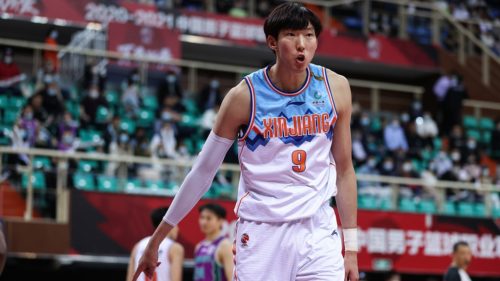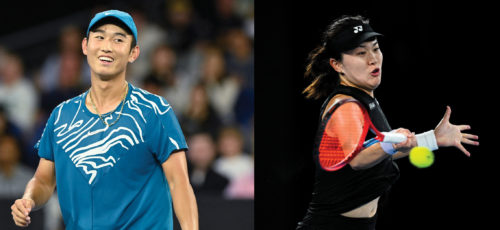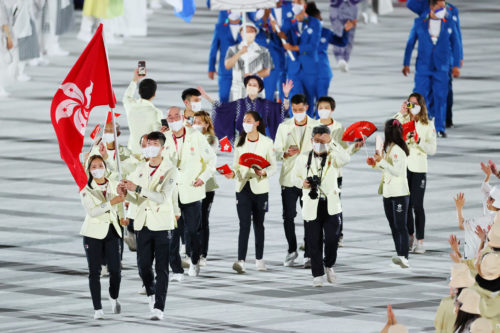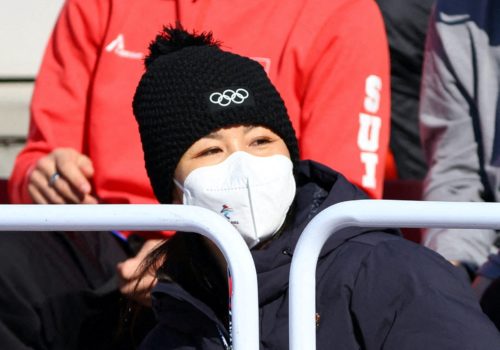Snooker star Ding Junhui ousted once again on sport’s biggest stage
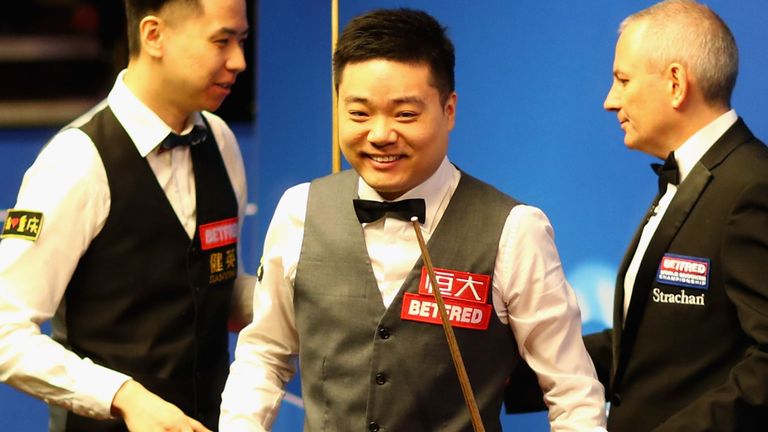
The China Sports Column is a The China Project weekly feature in which China Sports Insider Mark Dreyer looks at the week that was in the China sports world. (Image: AFP)
“I believe I can still win this one day. I’ll always keep up my hopes and I’ll never give up. I’m a sportsman, I can’t give up.”
Those are the words offered up by Chinese snooker star Ding Junhui 丁俊晖 after getting crushed 13-5 by Barry Hawkins in their World Snooker Championship quarterfinal clash this week.
Hawkins, however, had a very different take: “I felt like he gave up in the end, his body language suggested that he didn’t fancy the job today.”
However you see it, Ding missed arguably his best chance to win the sport’s top prize after his two main rivals, Mark Selby and Ronnie O’Sullivan, suffered unexpectedly early exits.
Snooker might not be the world’s most popular sport, but Ding has almost single-handedly made it one of the biggest draws on TV in China. He doesn’t have Hollywood looks or striking charisma, and he spends months every year outside of China — not least because he feels like that gives him the best chance to win. But in a country that’s still looking for true successors to Yao Ming, Li Na, and Liu Xiang as sporting royalty, Ding is — at the very least — part of that conversation.
At 31, he’s still relatively young for snooker — Hawkins, for example, is 39, while O’Sullivan is 42 — but he’s been in the public eye for well over a decade, since winning the 2005 China Open. That staying power, more than anything, has made him into one of China’s most recognizable sporting icons.
But with every defeat at the Crucible Theatre, where the World Championship is held, Ding’s mental block grows larger.
Yan Bingtao 颜丙涛, Zhou Yuelong 周跃龙, and Zhao Xintong 趙心童 — three of the Chinese players tipped by Ding to make a breakthrough in the sport — are far from household names, but sooner rather than later, the generation that grew up watching Ding will catch — and overtake — him.
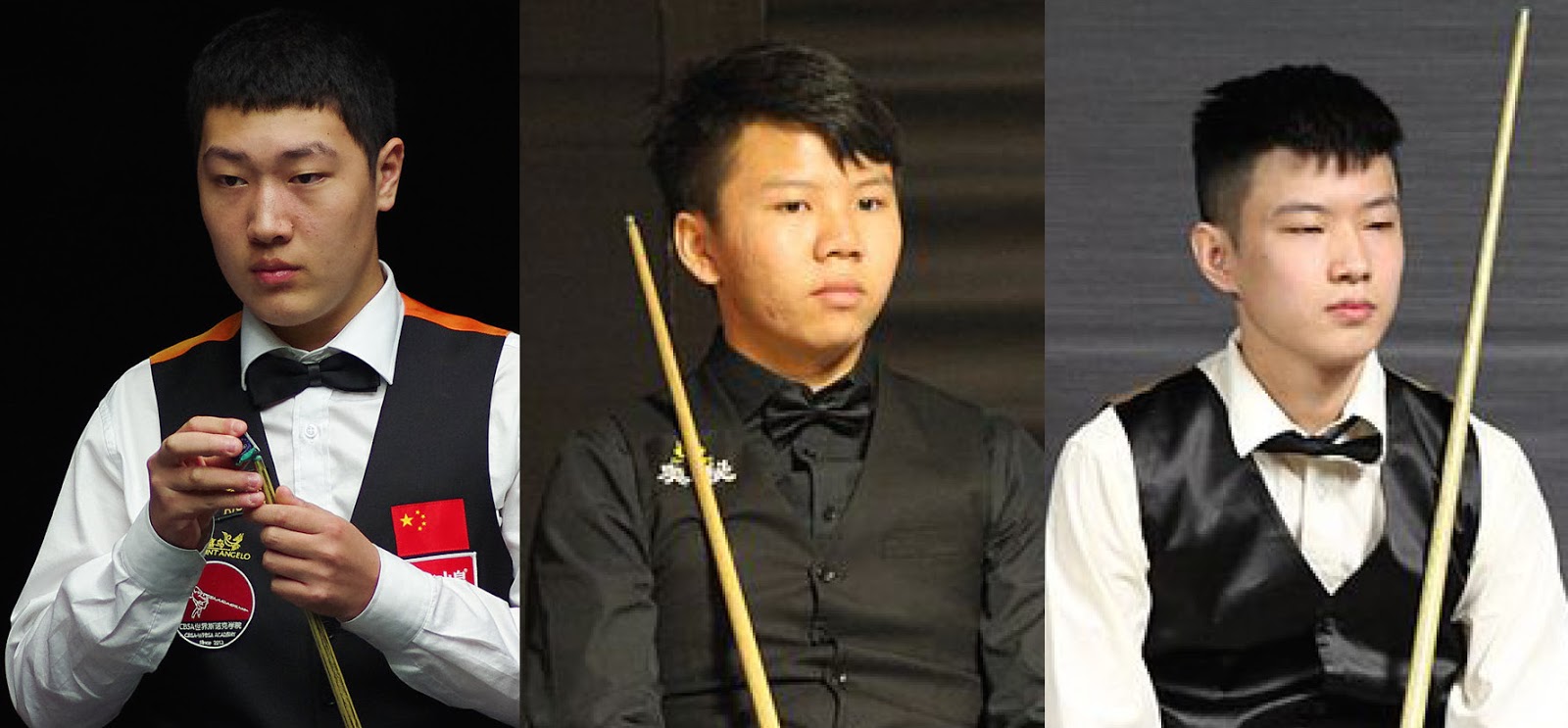
Ding has long been the player widely predicted to become the first Asian to win the world title, but nine players in the world’s top 50 — and 20 in the top 100 — are now Chinese. Maybe Ding’s impending fatherhood will allow him to relax a little and not choke on the big stage next time, but, in the meantime, the master is in danger of being swamped by a wave of apprentices.
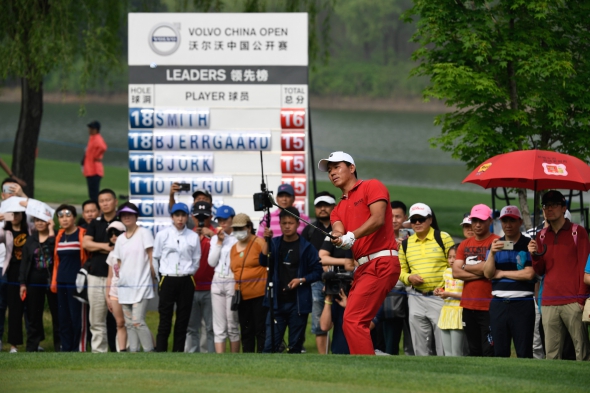
Golf is another sport where China’s star is on the rise. Feng Shanshan 冯珊珊 may have just slipped to No. 2 in the women’s world rankings after holding the top spot for six months, but last weekend’s Volvo China Open — an established event on the European Tour — showed a new strength in depth on the men’s side. Wu Ashun 吴阿顺 and Li Haotong 李昊桐 won this event in 2015 and 2016, respectively, and while neither was able repeat that feat last weekend, the fact that four Chinese players finished in the top 40 for the first time (Wu was 7th, Jin Daxing 金大星 was 14th, Li was 32nd, and Wu Hongfu 吴红富 was 37th) reflects a growing pyramid of strength within the game in China, not just a handful of standout individuals.
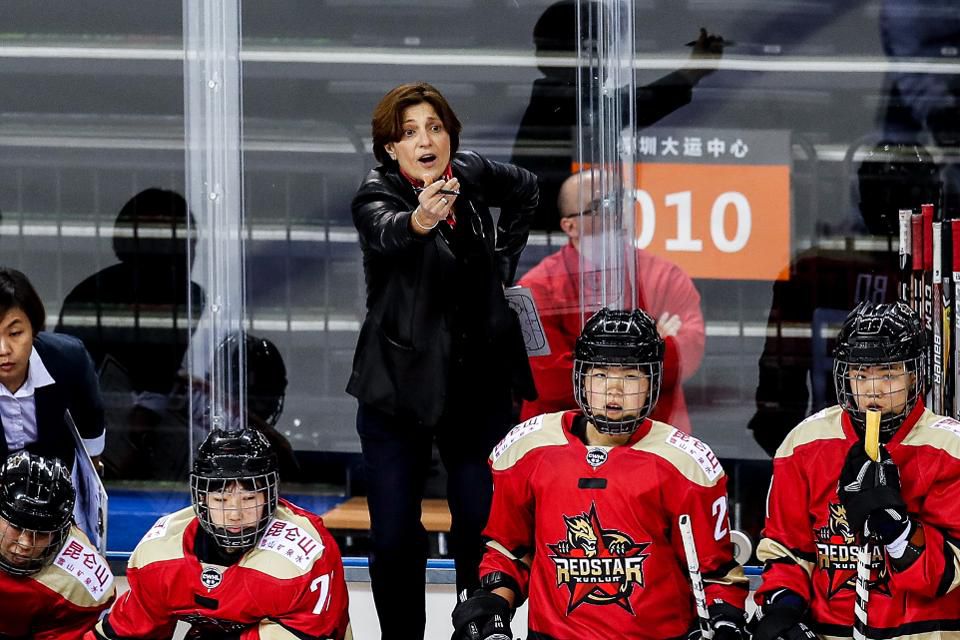
One sport in a state of flux, however, is ice hockey after Kunlun Red Star — the franchise that has effectively been charged with running the sport in China — made yet another major coaching change. With the men’s team, which plays in Russia’s KHL, still adjusting to its fourth head coach in two years, the women’s team saw legendary American coach Digit Murphy swap her coaching duties for a boardroom role. Murphy had led her squad to a near-perfect season in the Canadian Women’s Hockey League (CWHL), losing in the showpiece Clarkson Cup final in overtime in its debut year, despite only having six seasoned international players on a roster that was otherwise filled by less experienced locals.
The one area where Murphy could perhaps be faulted was in her other role — as coach of the Chinese Olympic squad — after China finished in a disappointing fifth place out of six teams at the Women’s World Championship.
After a bright start saw 4-0 and 2-1 wins over Poland and South Korea, China lost a tight game 2-1 to Latvia before further 3-0 and 1-0 defeats to Kazakhstan and Italy, who, as hosts, also topped the group.
Murphy had told me ahead of time that progress for the national team after a season of CWHL play would be measured by how many goals the team scored. But after nailing that rod to her back, she must have felt bitterly disappointed in the team’s final tally of seven goals — way down on the 13 scored at last year’s championship against almost the same opponents, but, crucially, before Murphy and her staff entered the scene.
In fairness, while the defeat to Kazakhstan was bad, the other two losses were by a single goal, and China still entered the final round of matches with an outside chance of winning the group.
However, Murphy now enters the boardroom in what hopefully is less of a ceremonial position than what Wayne Gretzky enjoys on the Chinese men’s side.
Reports have differed as to whether Murphy’s change of roles was mutually agreed upon, but either way it’s a shame because you won’t find a more passionate advocate for Chinese hockey — or indeed women’s hockey in general. Her oft-repeated mantra about a “Beijing miracle” — namely winning a medal at the 2022 Winter Olympics — had even the most skeptical observers wondering whether China might just have a prayer.
But the chances of that now happening in less than four years just got a whole lot smaller.
Also see:
China’s Olympic hockey aspirations: Q-and-A with Shirley Hon of the Kunlun Red Star franchise
The China Sports Column runs every Friday on The China Project. Follow Mark Dreyer @DreyerChina

